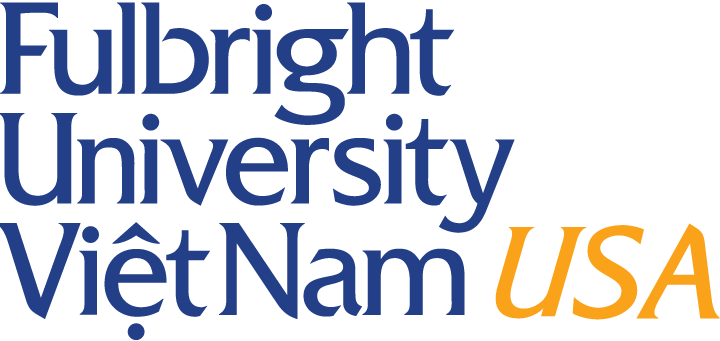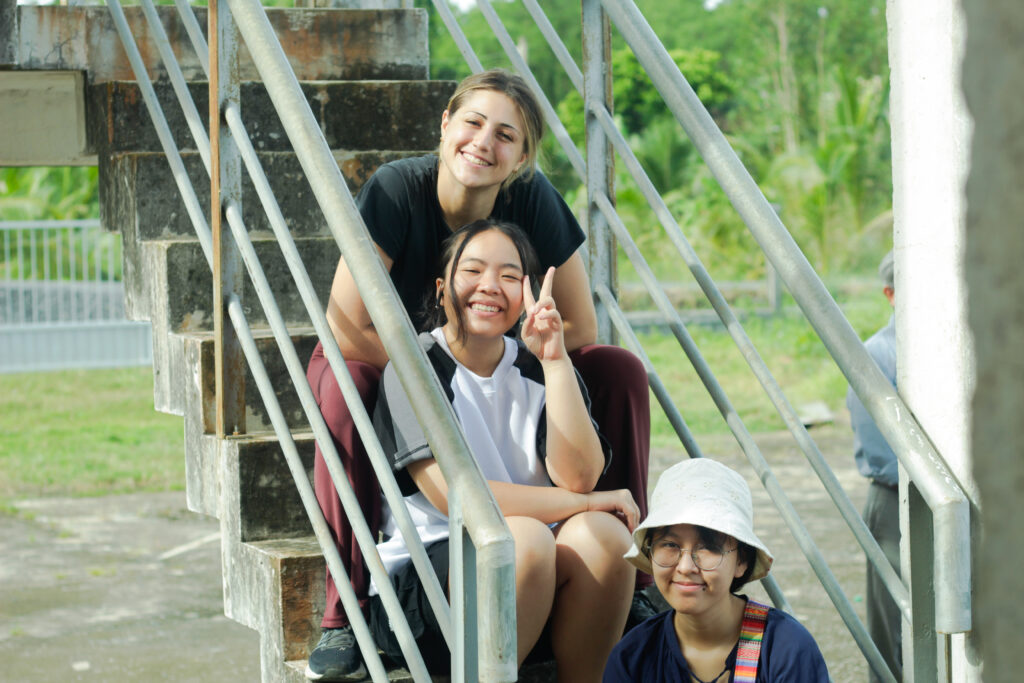
In the Fall semester annually, the class “Developing Vietnam” always receives widespread attention. As a connected class between Dartmouth College, USA, and Fulbright University Vietnam, students have the opportunity to explore Vietnam through various lenses, ranging from history, religion to the environment. This year, the class has seen many prominent projects, analyzed across diverse fields such as History, Film Studies, Literature, or even Environmental Science and Commerce.
Held annually in the Fall semester, the “Developing Vietnam” class is a connected initiative between Fulbright University Vietnam and Dartmouth College, USA – one of the Ivy League schools. With Vietnam as the central theme, students have the chance to deeply explore through various perspectives that seem different yet are intricately connected. This year, the class is focusing on three aspects that are of great interest to the youth and the community: history, religion, and the environment.
The class consists of two main phases. In the first half of the term, students engage in online learning and group assignments. In the latter half, the entire class finalizes their projects when Dartmouth students visit Vietnam. The young participants from both institutions have been actively involved in field trips to places like Chợ Lớn, the Cần Giờ mangrove forest, Vũng Tàu city and Bến Tre province. Additionally, throughout the course, students engage in lively discussions in various formats. That’s why, geographic distance has never been a barrier as they collectively explore the evolving landscape of Vietnam.
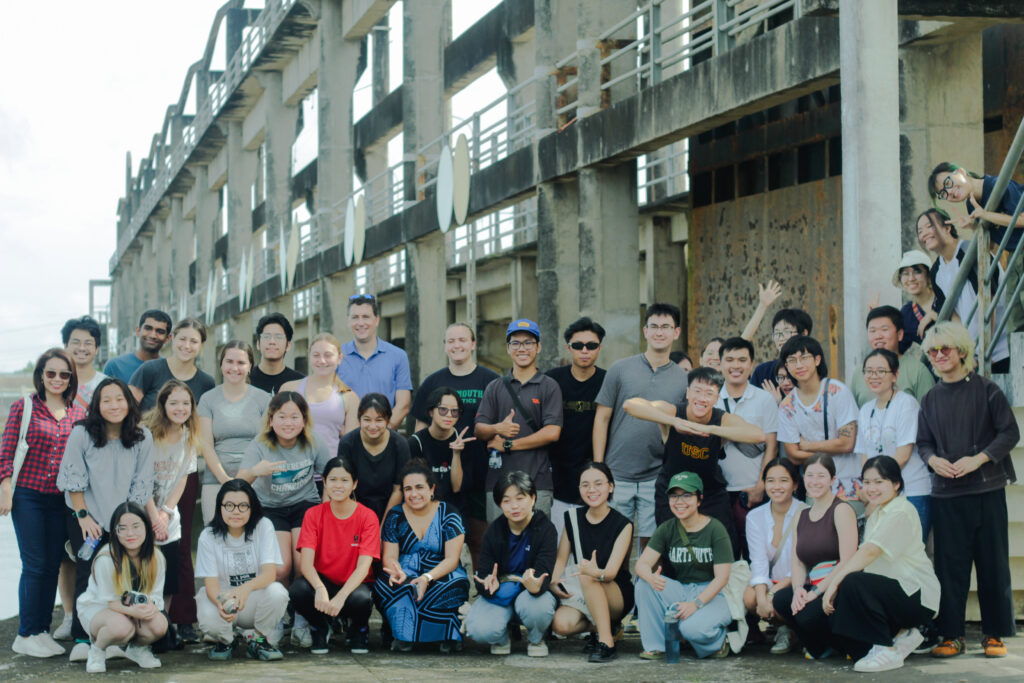
Dartmouth and Fulbright students visit Ba Lai Dam Gate in Ben Tre province.
Connection and development: lessons drawn from the course
The desire to establish the “Developing Vietnam” class stemmed from a conversation between two close friends from their time studying master’s degrees at Harvard: Dr. Nguyen Nam, Director of the Vietnam Research Center at Fulbright University Vietnam, and Dr. Edward Miller, Associate Professor of History at Dartmouth College in the USA. Both lecturers hoped to create a joint class centered around the theme of “Development” for students from various majors.
Dr. Nguyen Nam explains that choosing Vietnam for study is due to its diversity and the societal changes that still require exploration from various perspectives. Moreover, the combination of academic study with field research is a highlight of the curriculum. Only by observing both real-life situations and theoretical knowledge can students truly gain a comprehensive understanding of the topic of interest.
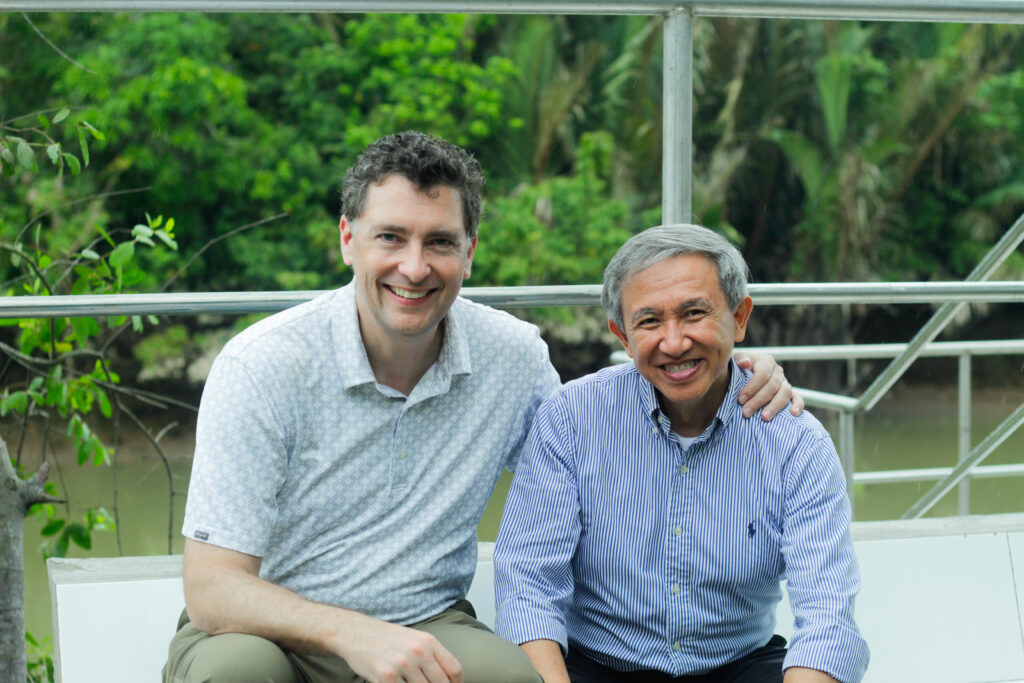
Dr. Nguyen Nam and Dr. Edward Miller are two long-time friends from their time in Harvard.
Lecturer Edward Miller also shared about the competitive nature through a meticulous selection process:
“This year, we received three times the number of applications compared to the available slots! The selection process was intense as we aimed to identify students who met the criteria for the course. We wanted to assess students based on their interest in Vietnam, openness to new experiences, and especially the significance of the trip to their personal plans”.
Students have also had unforgettable experiences in the class. Nguyen Ngoc Minh Khue, a second-year student at Fulbright, felt a significant personal growth: “Studying in the Developing Vietnam class, I gained a lot of value through experiences and practice. The field trips not only provided me with a practical perspective on what I learned, but they were also an unforgettable experience where I had the chance to connect and learn from Dartmouth students halfway across the globe”.

Minh Khue (in the middle), a second-year Fulbright student, feels proud when witnessing her progress.
“Rather than just being a student exchange trip, I see the course more like a warm invitation from Fulbright to Dartmouth. Although my major might not seem directly related to Vietnamese studies, participating in the class has helped me cultivate interdisciplinary thinking. While working on the project, I applied knowledge from my major subjects like Chemistry and Biology to analyze Vietnam’s development. I really like this new approach to learning because it creates coherence, logic, and can even be applied to real-world projects” – Anh-Ton said with enthusiasm. .
Featured student research projects on a developing Vietnam
This year’s class consists of 7 groups, each comprising students from both universities, which has encouraged better integration and collaboration. Working together from the beginning of the term, the teams have had time to discuss, research, and select highly interesting aspects to provide a comprehensive view of a developing Vietnam.
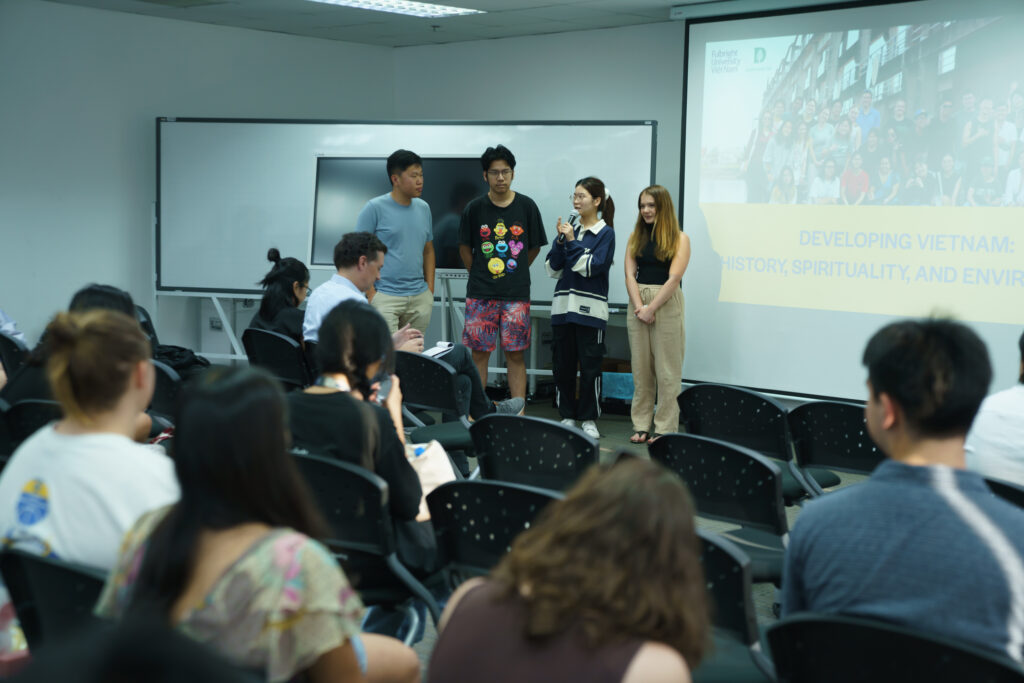
The group “GDP-o-What” studied the career-building journey of Vietnamese students and the role of fundamental resources influencing their perspectives. Results show that students from vocational and open universities tend to think differently compared to those from private and international institutions. While all harbor grand ambitions, those from private schools have specific plans and pursue their goals methodically. In contrast, vocational students believe they can achieve success through hard work.
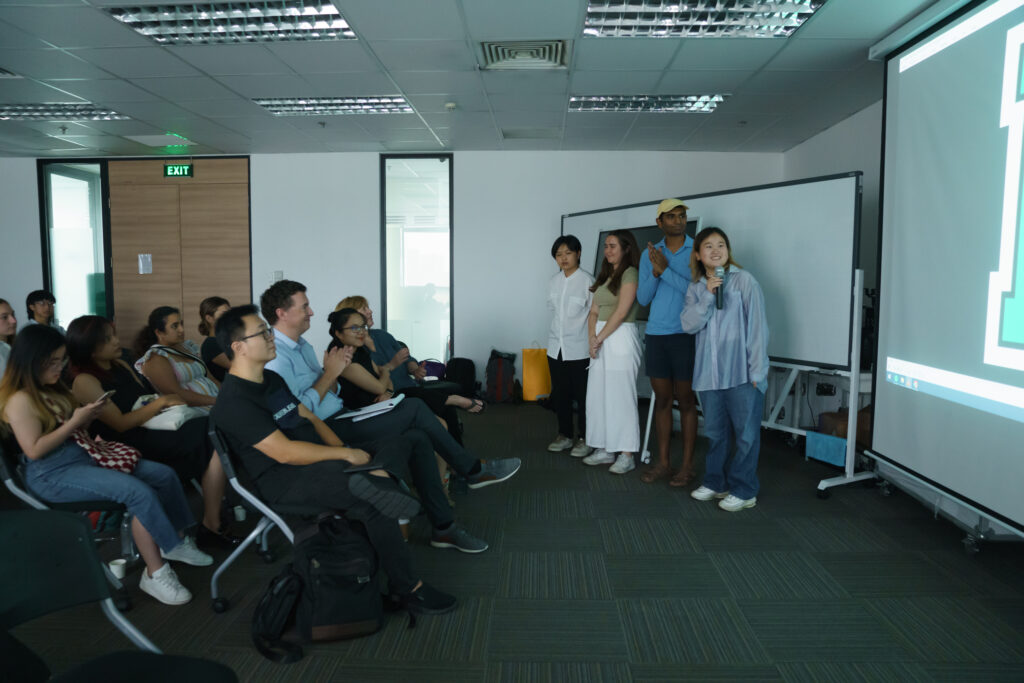
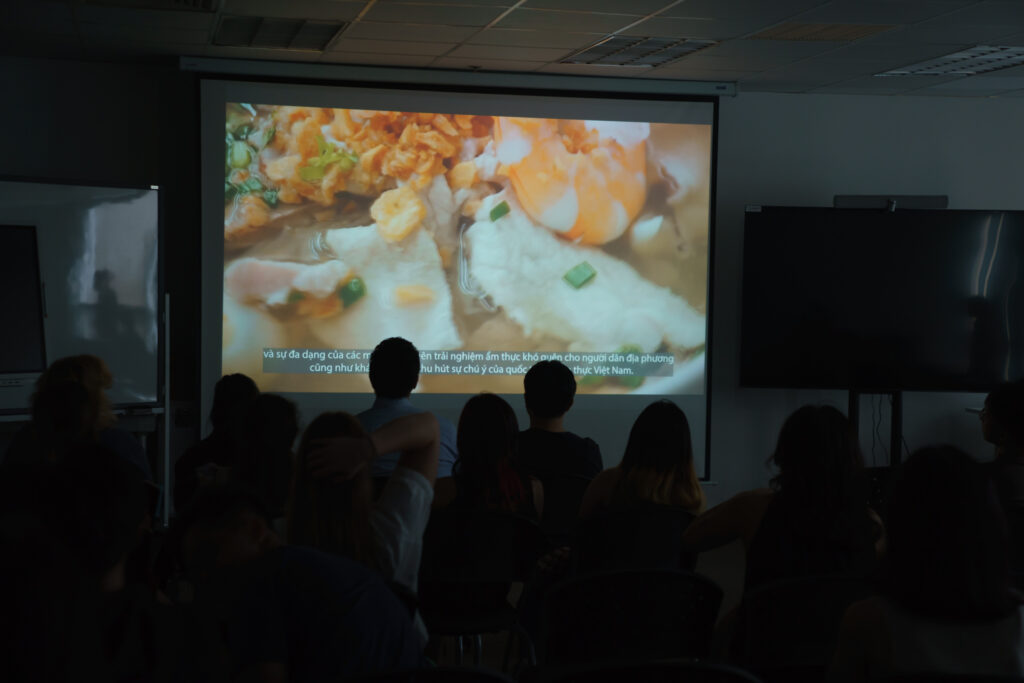
The Phở group explored the “Consuming” Culture in street food against the backdrop of globalization in Ho Chi Minh City. The students interviewed international tourists, domestic consumers, and street vendors. Through this, the young team realized the differences in perspectives among these groups regarding the “authenticity” of street food cuisine.
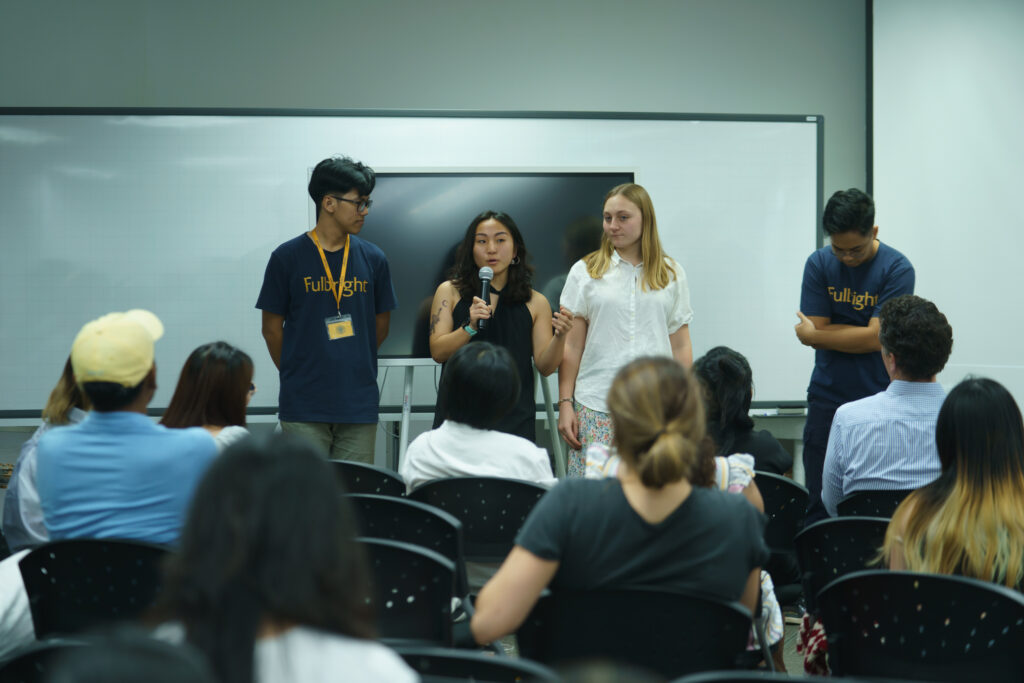
The “Kings and Queens” group analyzed the role of Tan My Market alongside the development of the Phu My Hung urban area. They found that despite the increasing occurrence of modern commercial distribution methods like supermarkets, consumers still maintain the habit of shopping at traditional markets.
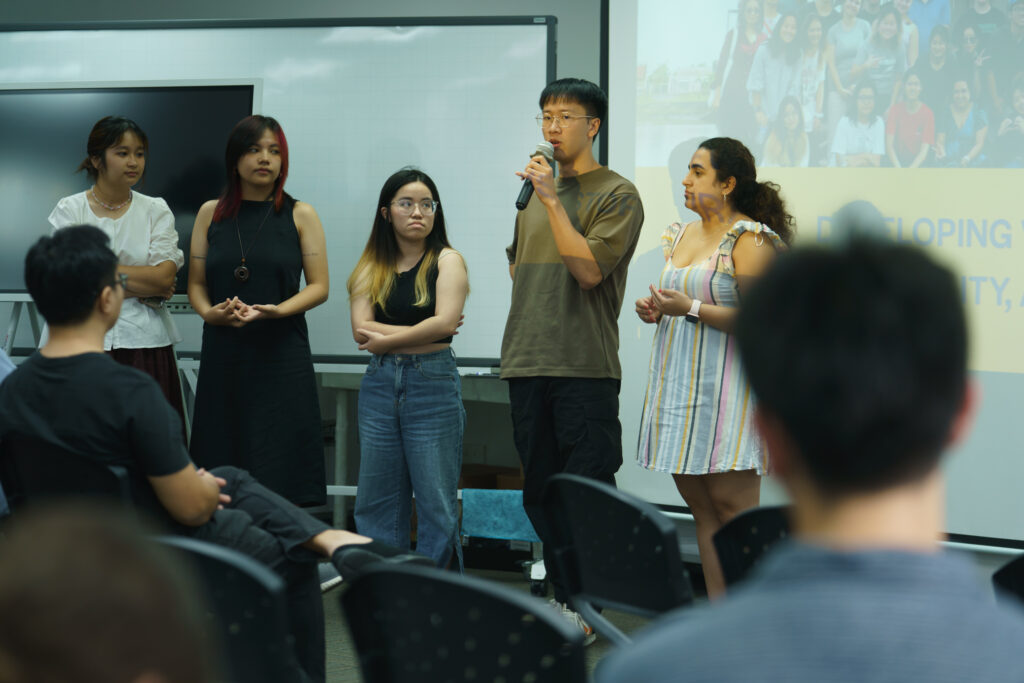
The transition from internal combustion engine vehicles to electric vehicles (EVs) was the research focus of the “Sustaining our Phởbulousness” group. After their research, they realized that decisions by the government, businesses, and consumer perspectives would be key factors determining the future development of this sector. Moreover, they assessed the feasibility of Vietnam’s goal of becoming carbon-neutral by 2050 by increasing the number of “green” vehicles.
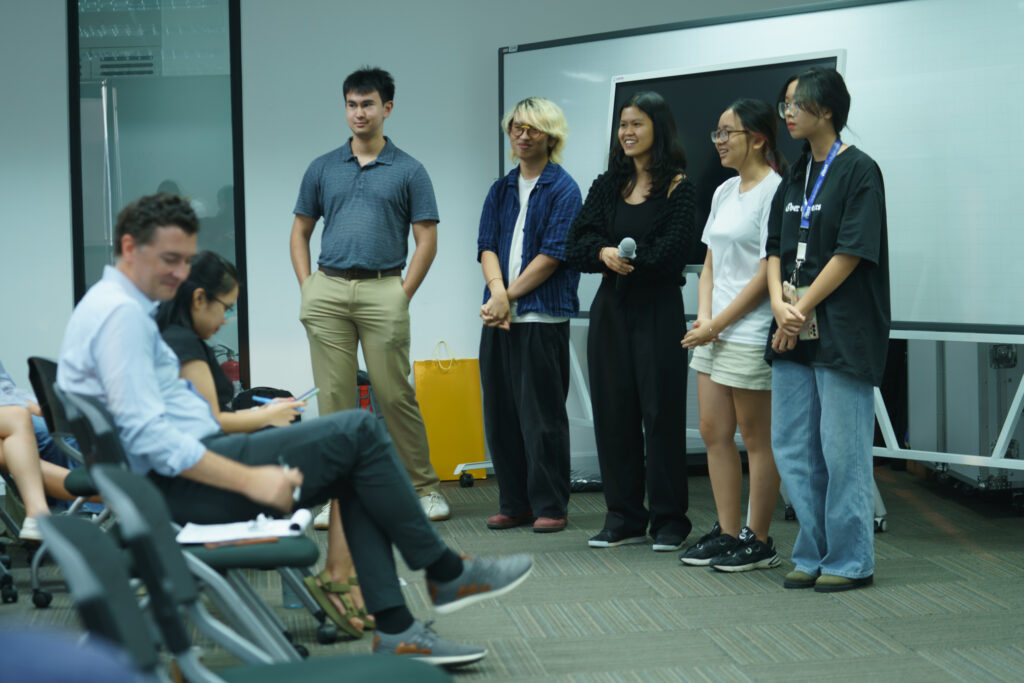
The students did not stop at economic, social, and anthropological topics; they also ventured into new areas like politics, art, and the environment. The “AmVietCulturalists” group investigated how Agent Orange has been addressed in diplomatic sessions. By observing signed documents, the students analyzed how Vietnam and the United States have negotiated this issue through post-war reconciliation efforts.
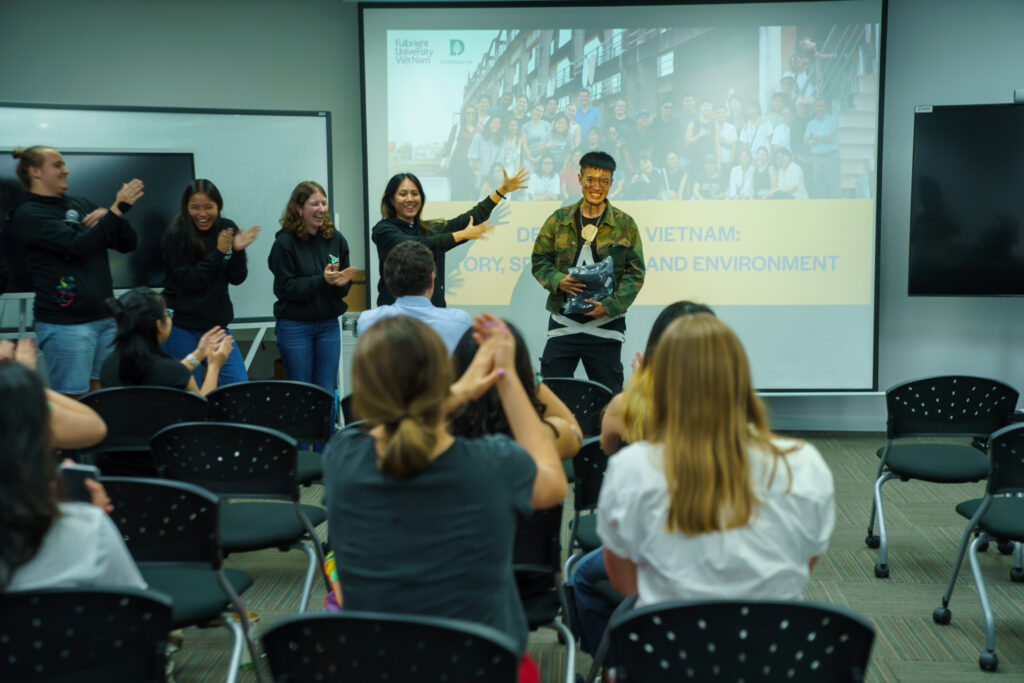
The “Tree Squared” group analyzed the purpose, historical and political perspectives surrounding graffiti (the street art paintings) in Ho Chi Minh City. They were surprised by the strong communal relationships among artists and how they enhance local beauty through their works. Moreover, graffiti not only expresses the individuality of the youth but also represents the community as a whole.
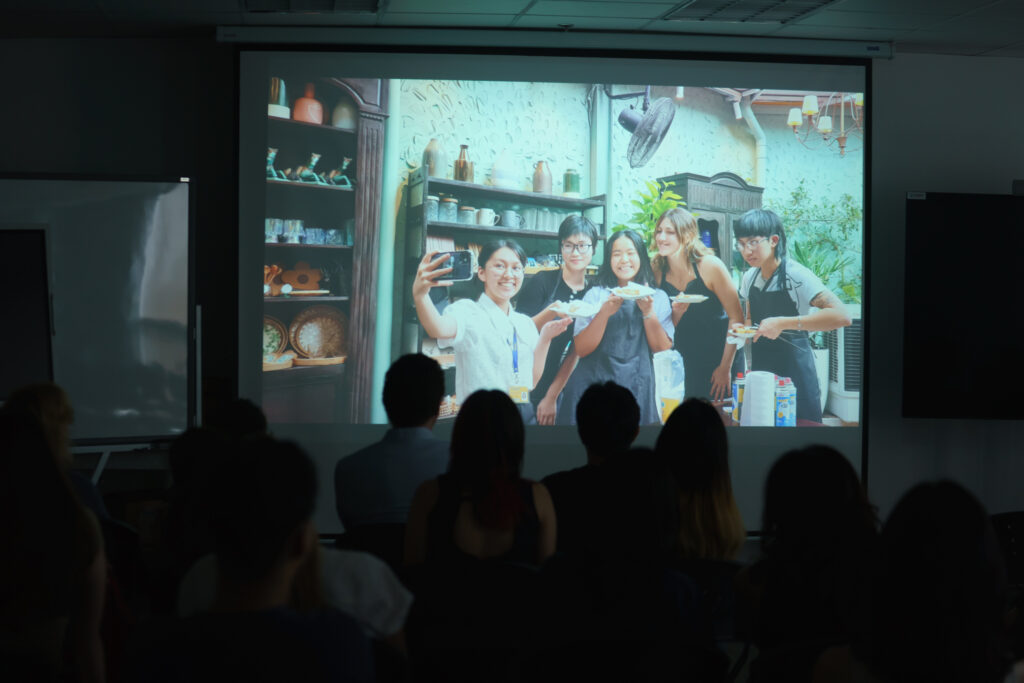
Finally, the “Milikat” group analyzed and illuminated the causes of delays in ecological projects in the Can Gio district. By evaluating the similarities and differences in perspectives on sustainable development, the students gained a clearer understanding of the lingering practical issues. Additionally, the research aims to delve deeper into the factors affecting the Can Gio mangrove forest and the lives of local residents amid economic development.
Looking back on the long journey that has passed, lecturer Nguyen Nam feels proud of his students. The students have made efforts and explored in their research, uncovering a variety of topics and completing them very well. Additionally, he recognizes that the class can develop further. In the near future, it’s quite possible that a “collection” of valuable research papers will be created.
